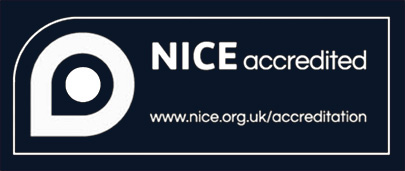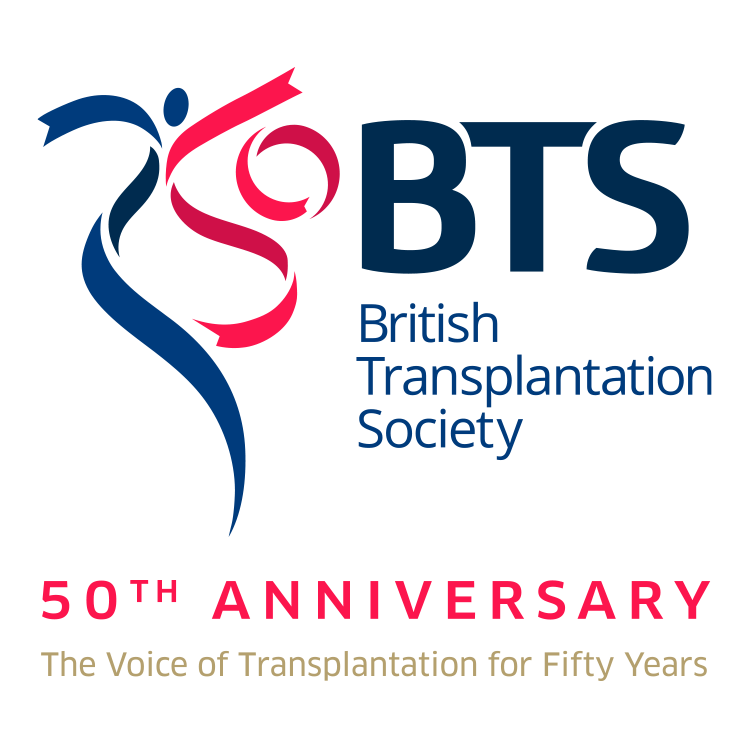Ethics Archives
Use our interactive list to view our draft and approved position statements
Choose a statement below to view
Approved Position Statements
Paired organ exchange
Paired organ exchange refers to the situation where a couple who have indicated their wish to donate a kidney from one partner to the other cannot do so because of blood group incompatibility, enter into an arrangement with another couple who are in a similar position such that the resulting exchanged organ transplants are not ABO incompatible. This is an extension of the existing related or unrelated live organ donation practice and as such does not pose any particular ethical issues related to the actual donation. The donor and recipient will of course be subject to the usual assessment process and informed consent procedure.
The difficulties which arise are primarily related to the practicality of the exchange. It is recommended that the procedure is carried out as nearly simultaneously as possible, but not necessarily in the same centre. The exchange should be anonymous unless both couples agree otherwise as in non-directed cadaveric organ gifting. Both couples also need to understand that there are no guarantees that the organ must be used in the potential recipient as there may be unforeseen difficulties and in that case then the gifted organ should be made available to the national waiting list under the normal organ allocation rules
Altruistic (nondirected) Living Donation
Altruistic donation is the gift of a kidney from an adult to an unspecified recipient with allocation of the organ according to agreed rules. This has now been carried out successfully in North America where approximately 15% of potential altruistic organ donors were accepted following full assessment. Ethically this does not pose a difficulty provided individuals have capacity to give informed consent and understand the individual risk. Donation should be unconditional and anonymous although again reports of the progress of the recipient should be made available to the donor if required. The principle of best usage of a scarce resource would dictate that kidneys should be allocated according to an agreed scoring system, and this could include shipping organs from one centre to another. The mechanics of organ allocation fall outside the remit of ethical consideration and regulation of the process is clearly within the remit of ULTRA.
Nonheart Beating Donation
The use of non heart beating donation (NHBD) has significantly extended the potential donor pool.
Controlled NHBD where the potential donor indicated in life their wish to donate and the organ donation procedure (cannulation etc) has been discussed with and agreed by relatives prior to the donor’s death is ethical. The general overriding principle of respect for the wishes of the individual in life (autonomy) should, however, be overruled by refusal of consent for donation by the next of kin. As is current clinical practice, unless there is a change in the law which specifically authorises organ donation if the deceased wished this to occur, then relatives consent before retrieval should be required. The distress caused to living persons and the negative overall effect of the publicity on organ transplantation should take precedence over the wishes of the deceased.
The practical difficulties are recognised but are outwith the remit of ethical consideration. The use of such a donated organ should also be subject to informed consent of the recipient with explanation of the increased risk of delayed graft function and somewhat poorer overall outcome.
Uncontrolled NHBD is more controversial. It is felt ethically acceptable to cannulate a potential NHBD if it can be established beyond reasonable doubt that that individual has indicated their wish to donate in life and the view of the next of kin is unknown. This recognises the right of the individual to donate their organs and respects the wishes of the individual in life. There is room for further debate on what constitutes ‘beyond reasonable doubt’. If the individual had registered with the National Organ Donor Registry or carried a Donor Card then this could be taken as indicative of their wishes. Wishes of relatives of the deceased, once available, should still be able to override this process. If the wishes of an individual cannot be established then consent for cannulation must be obtained from a relative prior to cannulation. There is room for debate on whether any other individual should be empowered to give such consent – eg HM Coroner.
Donor Care
The approach to managing an individual changes once death is confirmed. After death it is unethical not to give care to a donor which preserves organ function for donation if that was that individual’s wish and relatives have consented to organ donation. Before death the duty of care of the doctor is to the patient and any actions must be in the best interests of the patient. After death then the duty of care is to the potential recipient of any organ thus it is mandatory to give care which preserves organ function, bearing in mind the need to show respect to the cadaver.
Payment for Live Organ and Tissue Donation
To be considered in conjunction with the position statement on Transplant Tourism
The BTS considers that payment for organ or tissue donation where the donor accrues financial or material gain is unethical. Such payment is illegal under current legislation. An organ or tissue for transplantation should be freely given without coercion, financial or material gain.
Since it is important to increase organ donation from all sources, the BTS strongly believes that there should not be any disincentive to donate. It follows then that financial expenses that arise during the process of organ or tissue donation that would not otherwise be incurred should be reimbursed.
Such reimbursement should be the responsibility of the health services and any system set up to provide such reimbursement should effectively exclude the possibility of exploitation of donors or profit to intermediaries.
The suggestion that an “ethical market” be developed where financial incentives that are independent of the recipient are employed to increase organ donation contravenes the principles of equity and justice by encouraging disadvantaged individuals in society to donate. Furthermore such a market could allow commerce in organ and tissue transplantation to arise and is regarded as unacceptable.
Approved by BTS Council September 2003
Transplant Tourism
To be considered in conjunction with the statement on Payment for Organ and Tissue Donation
The British Transplantation Society does not support the practice of potential organ or tissue transplant recipients travelling abroad to circumvent the ethical, moral and legal framework governing organ transplantation in the UK.
Clinicians are expected to inform their patients that they believe this practice to be ethically unacceptable and to positively discourage their patients from travelling abroad. It is recognized, however, that although the clinician is not supportive of their patient’s actions, he/she nevertheless has a duty of care, which continues after transplantation should this occur. This duty obligates the clinician to:
i) fully inform and frankly discuss with the patient and their family the potential risks and benefits of going abroad for a transplant;
ii) encourage a live donor transplant in this country (such that the relationship of the donor with the recipient meets the requirements of the Human Organ Transplant Act);
iii) provide their normal standard of care to that patient before and after return if the patient carries through the action.
The reasons for this position are:
Such an action compromises the standards of ethical behaviour agreed by the society in which the recipient lives, in this instance the UK. The recipient is morally bound to adhere to such standards by virtue of their chosen residence.
It is clear that the use of donors from abroad breaches the principles of equity and justice in organ allocation, both for the individual travelling abroad from their usual residence and for recipients in other countries deprived of the opportunity of an organ transplant.
Clinical outcomes are frequently demonstrably inferior in some countries undertaking transplantation from paid live donors and/or transplantation from donors under other forms of coercion.
Agreed by BTS Council September 2003
Draft Position Statements
‘Research on donors or donor organs and tissues’
Introduction
Research in transplantation offers the potential to increase knowledge and further improve present standards and outcomes. Investigational procedures may require treatment of the donor prior to organ or tissue removal or can involve the treatment of organs or tissues after removal from the donor, either before or after implantation. This statement deals with research on the donor before organ or tissue removal and on the donated organ or tissue prior to and after implantation, but excludes research involving DNA or gametes, which are subject to separate statutory regulation by the HFEA.
Planning research
Any research protocol must have prior approval from the appropriate Research Ethics Committee.
There are three parties whose consent may be material to the conduct of the research: The donor in life, the donor family where the donor is deceased, and the recipient. The interests of all these parties, where appropriate, must be respected.
Where research is carried out after implantation into the recipient, the consent process need not involve the donor or donor family. Organs that are donated for transplantation are given unconditionally and once transplanted they become, in effect, part of the recipient. Hence consent for research after implantation is for the recipient alone to provide. The recognition of the interests of the donor in such research is vested in the REC scrutinising the research proposal.
Research before implantation
Living donor
Whether the research is carried out on the donor before organ or tissue removal, or on the donor tissue or organ after removal, consent must be sought from both the donor and recipient. Consent is necessary because the donor/donor tissue may be the subject of an investigational procedure whose benefit is unknown. Refusal to consent to take part in the research should not affect the donation, which may proceed as usual.
Deceased donor
True informed consent is not possible, though the donor may have indicated in life that research may be undertaken.
With research carried out on the donor before organ or tissue removal, assent must be sought from the donor family at the same time as seeking assent for organ donation itself, to establish lack of objection from the relatives. Assent is necessary because the donor may be the subject of an investigational procedure whose benefit is unknown. Refusal to give assent for the research should not affect the donation, which may proceed in the normal way. It is possible, however, that the request for assent to carry out research may affect the decision of the person being asked to assent to donation. This is a consequence that should be considered on an individual basis in the wider interests of advancing knowledge of transplantation.
With research on donor tissues or organs after removal but before implantation, it may not be practicable to obtain specific assent. For example, if research is taking place at another centre, but the allocation of the tissue or organ to this centre is as yet unknown. In this case, it is justifiable to rely on generic consent for research obtained with the usual assent for donation. Since it is always possible that a receiving centre will be undertaking research, generic assent should be sought as a matter of routine.
Research after implantation
The recipient has an interest in research carried out on any organ or tissue he or she is about to receive. Departments carrying out research in donors or donor tissues should give potential recipients as much notice as possible about the research, as would be expected for other clinical research activity. This may involve a generic statement for potential recipients, indicating that they may be invited to take part in the research and explaining their rights. It is advisable that such generic or specific information for patients about research has approval from the appropriate Research Ethics Committee.
True informed consent should also be sought where possible from the intended recipient where the donor organ or tissue is part of a research protocol. This raises a potential conflict, since on occasion the nature of the investigational procedure will be such that refusal of consent to take part in the research effectively means no transplant on that occasion, as the organ or tissue on offer will already be part of the research. This could be considered coercive, although the recipient still may choose whether or not to accept the transplant. Once again, this is an unintended consequence that should be considered in the wider context of advancing the knowledge of transplantation.
The practicalities may prevent each individual recipient giving true informed consent for each individual research project and this is acceptable in the light of the potential overall benefit of research. It is realised that because a potential recipient may not have been identified before the investigational procedure is carried out that they may not be able to object and hence be placed in the coercive position of agreeing the research or not receiving the transplant. It is therefore important that the research has been properly scrutinised by the relevant Research Ethics Committee
Conclusion
It is difficult to make provision for every possibility, and therefore the relevant Research Ethics Committee should consider the merits of each proposal. It is recommended that the relevant REC should seek advice from the appropriate transplant specialty, in particular to verify the evidence base for the proposed research and possible unwanted effects of the research procedure.
With these provisos, the Society supports properly conducted research on organ or tissue donors to improve transplantation outcomes, where appropriate consent or assent as outlined above has been obtained.

![]()






